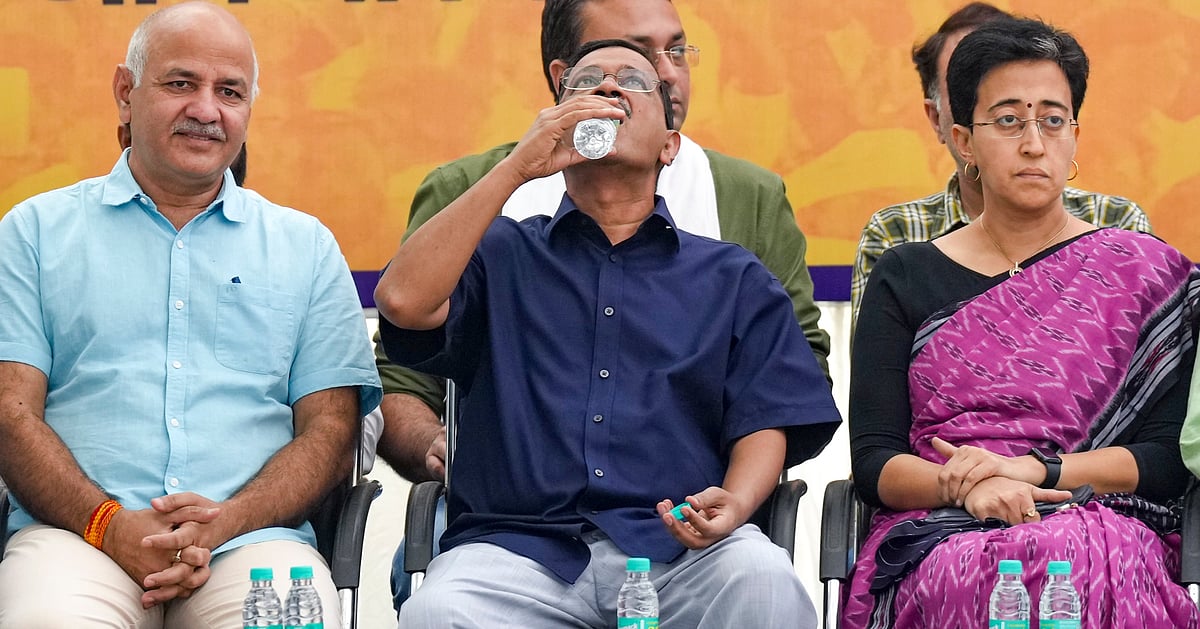 |
|
The political landscape in India is currently abuzz with the ongoing case surrounding Delhi Chief Minister Arvind Kejriwal and the Enforcement Directorate (ED). The controversy centers around the alleged lack of sanction to prosecute Kejriwal in connection with the Delhi excise policy case. The Aam Aadmi Party (AAP), the party Kejriwal leads, has vehemently rejected claims that the ED possesses the necessary authorization to proceed with a prosecution. This rejection underscores the complex interplay of power and legal procedure within the Indian political system. The situation raises questions about the transparency and accountability of investigative agencies and the potential for political maneuvering in legal processes. The central point of contention revolves around the absence of publicly available evidence supporting the ED's alleged possession of the sanction. The AAP’s demand for the ED to produce a copy of the order granting such sanction is a direct challenge to the agency's claim, highlighting the lack of transparency in the process. This lack of transparency fuels suspicions of political bias and raises concerns about the due process rights of Kejriwal. The core of the matter rests on the interpretation and application of legal frameworks governing the prosecution of high-profile individuals within the political sphere.
The legal requirements for prosecuting a chief minister or any individual holding a high office in India are far more complex than those applied to ordinary citizens. These complexities stem from constitutional provisions aimed at protecting elected officials from politically motivated prosecutions. The procedural intricacies involved in obtaining sanction for prosecution necessitate rigorous scrutiny of evidence and adherence to established norms. Failure to comply with these legal prerequisites could lead to the dismissal of charges and undermine the credibility of the entire investigation. The current situation highlights the potential for political pressure to influence the investigative process, raising concerns about the impartiality and independence of institutions tasked with upholding the rule of law. This case serves as a microcosm of the larger debate surrounding the balance between political accountability and safeguarding against politically motivated persecution of elected representatives. The intricate nature of the Indian legal system, along with the inherent political tensions, creates fertile ground for disputes over procedures and interpretations of laws. The lack of clear communication and transparency from the relevant authorities only exacerbates the uncertainty surrounding the case.
The silence from the Lieutenant Governor's (L-G) office adds another layer of complexity to the unfolding situation. The L-G holds a significant position in the Delhi administration, and their response or lack thereof carries considerable weight. Their silence could be interpreted in several ways, ranging from neutrality to tacit approval of the ED's actions. The absence of a clear statement from the L-G's office leaves room for speculation and interpretation, which further fuels the ongoing political discourse. The broader implications of this case extend beyond the immediate legal ramifications for Kejriwal. It underscores the critical need for greater transparency and accountability in the functioning of investigative agencies in India. Independent oversight mechanisms, ensuring that investigations are conducted fairly and without political interference, are essential to maintaining public trust in the justice system. The case serves as a reminder of the importance of a robust and impartial judiciary to safeguard the rights of individuals, regardless of their political affiliation. The ongoing legal battle will undoubtedly continue to be a focal point in India's political landscape, raising crucial questions about the integrity of institutions and the balance between political power and the rule of law. The nation awaits the official clarification regarding the sanction to prosecute, and its impact on the already highly charged political climate.
The case also highlights the ongoing tension between the central government and the Delhi government, with the AAP frequently accusing the BJP-led central government of using investigative agencies to target political opponents. This accusation is often levied against other opposition leaders across the country, raising broader questions about the appropriate balance of power between the central and state governments in India’s federal system. The current political climate in India is marked by significant polarization and mutual accusations of misuse of power. This case is thus likely to further intensify existing political divides and shape the trajectory of future political interactions. The focus on transparency and the release of the official sanction document becomes not just a legal matter, but a critical aspect of maintaining public trust in the government and its institutions. The eventual outcome of this case will likely have far-reaching consequences on the way future investigations are conducted and on the overall level of transparency expected within the Indian political system. The ongoing debate surrounding this case is not merely about a specific individual but about the broader principles of fairness, accountability, and the rule of law within the Indian context.
Source: 'ED must show order copy', AAP rejects claims of sanction to prosecute Kejriwal
